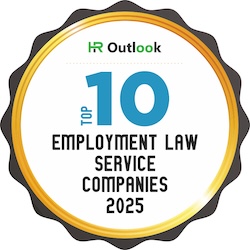Pregnancy Discrimination
Murray Law welcomes the opportunity to provide experienced counsel and representation to persons subjected to discrimination based on pregnancy, childbirth, or related medical conditions.
Federal and Colorado law prohibits employment discrimination because of pregnancy, childbirth, or related medical conditions.
Pregnancy discrimination is unlawful sex discrimination.
Applicants and employees at every level of authority, in every position, are protected against discrimination because of pregnancy.
The law protects employees and applicants in private sector employment and federal, state, local government employment.
This practice represents clients asserting pregnancy discrimination claims in federal and state court lawsuits, filing discrimination charges with federal, state, and local government agencies, and arbitration and mediation proceedings.
Steven Murray has successfully represented individuals subjected to pregnancy and sex discrimination in lawsuits before the United States District Court for District of Colorado.
Federal and Colorado Law
The Pregnancy Discrimination Act of 1978, a federal law, prohibits discrimination based on pregnancy, childbirth, or related medical conditions.
This law prohibits discrimination based on past and current pregnancy, potential pregnancy, or medical conditions related to pregnancy or childbirth.
The law covers pregnant women whose physical condition qualifies them for disability leave under company policy.
The Pregnancy Discrimination Act is an amendment to Title VII of the Civil Rights Act of 1964. Title VII applies to employers 15 or more employees.
The Colorado Anti-Discrimination Act [CADA] prohibits discrimination based on pregnancy. This law applies to employers with one or more employees.
Pregnancy Stereotype
The Pregnancy Discrimination Act is intended to address the false, discriminatory stereotype that women are less desirable employees because they are likely to become pregnant.
An employer cannot discriminate based on any stereotype about a woman’s ability or inability to perform her job duties because of pregnancy, childbirth, or related medical conditions.
Discriminatory Actions
An employer cannot treat an employee or applicant differently because of pregnancy, childbirth, and related medical conditions.
An employer cannot take adverse actions that discriminate against an individual because of pregnancy, childbirth, and related medical conditions.
Because of pregnancy, childbirth, and related medical conditions, an employer cannot take actions about hiring, firing, compensation, job assignments, promotions, layoff, training, fringe benefits, and measures about any other term or employment condition.
An employer cannot limit, segregate, or classify employees or applicants, which deprive or tend to deprive any person of employment opportunities because of pregnancy, childbirth, and related medical conditions.
The law prohibits the employer from acting to harm a person’s status as an employee because of pregnancy, childbirth, and related medical conditions.
Pregnancy Discrimination & Harassment
Pregnancy harassment is sex discrimination.
Pregnancy-based harassment is actionable when the conduct is unwelcome and sufficiently severe or pervasive to alter employment conditions and create an abusive working environment, such as an environment permeated with offensive slurs.
Retaliation
Federal and Colorado laws prohibit employers from discriminating against individuals through retaliation because they engaged in a protected activity about pregnancy, childbirth, and related medical conditions.
Protected activity includes but is not limited to filing a complaint of pregnancy discrimination with the employer, filing a charge of discrimination with a federal or state government agency, or participating in an investigation of a discrimination complaint.
Family and Medical Leave & Disability Leave
The issues of reasonable accommodation, pregnancy, disability and family leave laws may confront an individual in employment. Any person concerned with these issues should consult an attorney to learn the rights and remedies under federal and state law and the employer’s policies.
The Family and Medical Leave Act [FMLA], a federal law, provides for leave because of pregnancy or childbirth and prenatal care. The FMLA applies to employers with over 50 employees. The law provides employees unpaid leave for 12 weeks a year.
On November 3, 2020, Colorado voters passed a ballot measure approving the Paid Family and Medical Leave Initiative. This law creates a state-run paid leave insurance program for employees. The law becomes effective on January 1, 2024.
Conclusion
Murray Law welcomes the opportunity to discuss your right to be free from pregnancy discrimination in the workplace. We look forward to meeting with you. Please contact Steven Murray at 720-600-6642.












